The Entrepreneurial Accountant: The journey to going solo
Perks of a co-founder and subscription-based accounting
23 March, 2022
Lucy Cohen, the co-founder of Mazuma, talks about why she started her accountancy practice and why they opted for a recurring income model.
Ever thought about a subscription-based model for your accountancy practice? That’s the approach Lucy Cohen took for her practice.
The co-founder of Mazuma joins Entrepreneurial Accountant host Mike Psaras to talk about the benefits of having a business partner, why finding your community is important and how to make your chosen revenue model work for your practice.
Here’s what they cover:
- How having a co-founder can be a real benefit
- The importance of finding your own tribe
- Playing to your strengths will help you get ahead
- Pros and cons of the subscription-based approach
- Choosing the right revenue model for your practice
How having a co-founder can be a real benefit
Mike Psaras
Hi, and welcome to the Entrepreneurial Accountant. Today we have podcast royalty. An author and an accountant, it’s none other than Lucy Cohen, co-founder of Mazuma.
Hi, Lucy, welcome to the show.
Lucy Cohen
Hi, Mike, nice to see you.
Mike Psaras
So, I wanted to ask you how having a co-founder for Mazuma benefited you in your experience?
Lucy Cohen
Yes.
So, Sophie, who’s my co-founder and best friend, we have been best friends since we were 11. We went to high school together, so we’ve known each other a very long time.
And I work best in collaboration with other people.
So, we always joke that I need an audience. Like, I’m no good left to my own devices. I need someone to show off in front of. I need an audience, and she works best in tandem with that.
So, my mom describes us as like opposite sides of the same coin.
So, we’re both approaching the same goal, but from very different ways, and it means we always reach a good solution to it.
So, I’m like, let’s spend all the money and she’s like, no Lucy, let’s not spend the money. Let’s like think about it sensibly.
So, yes, it works really well for us.
It’s something that can be quite tricky, especially to work with a friend, and I think you just have to be really clear on who’s doing what and what your boundaries are.
Neither of us try and step on each other’s toes in terms of who does what work. We’re very clear about who does what.
I sit much more on the brand, the marketing, that side of the business, commercial side. And Sophie sits much more on financial and technical and technology side of things, and never the twain shall meet.
Apart from when we’re discussing strategy, putting budgets together, or at board meetings, we don’t get involved in each other’s work, unless the other one asks for input, and that works really nicely.
We’ve always been very clear about who does what, and I think that means it works.
And also, we’re just such different people. We approach things so differently, that naturally we’d fall to doing different things.
I think that’s why it works really nicely.
In terms of having a co-founder, it’s a massive comfort, because there’s always one of us having a wobble, so it’s nice to have the other one going… it’ll be like having a cheerleader, “It’s going to be fine, you can do this!” Like, “It’s going to be great, we can do it.”
Running a business is lonely, it can be really lonely out there, and having a co-founder, someone in your corner is really good.
Mike Psaras
Yes, it sounds amazing. Like from the sounds of it, you really balance each other out.
Lucy Cohen
Yeah.
The importance of finding your own tribe
Mike Psaras
And just having a soundboard, as you said, just being able to be like, “I’m having a stinker today,” and getting you out of that hole, it’s really nice, and it’s fortunate because I think most people probably start as sole practitioners, you know.
And so, while you guys have got that balance of, as you say, marketing, branding, and the technical side of things, a lot of people probably start off without that, and I think it’s really difficult to wear all those hats at the same time, especially ones that you’re so not used to wearing.
You’ve been a technician, you’ve been an accountant behind the numbers, and all that kind of stuff.
And suddenly people who are looking to get into this as a business, they have to go into understand what marketing is all about, how sales funds work, how paid ads work, and how to build a team, or an office, all that kind of stuff.
It’s almost so overwhelming.
So, I mean, you did have the benefit of having a co-founder, but what would you say to somebody who is a sole practitioner looking to start?
How would you say would be a good way to balance all of those things out?
Lucy Cohen
Find your tribe, find your community.
So, accountants are much more willing nowadays to help each other than they used to be.
There are loads of online communities of like-minded people who you can create a safe space with.
What you don’t want is anything you say to be used against you commercially.
I’d hope that we’ve all got enough integrity not to do that, to recognise other people’s vulnerabilities, but find a safe space, Chatham House rules, create a mastermind group and share with people.
The most beneficial things I used to find, I’d meet up with the business owners and we’d go out for lunch or something, or go out for a drink, and chat about business, and you’d realise that the problems that you feel are burying you and you’re drowning in, and that you think, “How is this happening to me?” happens to everybody.
It is the Wild West out there when it comes to business and nothing that has happened to you will be unique, or if it is unique, I can guarantee someone else has had something just as wild happen to them.
And there’s massive comfort in hearing other people’s war stories.
You need a safe space to share your war stories, to share your fears, and share your anxieties, not just somewhere to shout about the good stuff.
I think we’ve seen people be a lot more open about what a bad day looks like, and what challenges they face.
And that’s so healthy, because running a business is hard.
Running an accounting practice is hard.
And it’s especially hard in accountancy because you’ve got this of, well, I’m supposed to be professional, I’m supposed to be the expert.
If I don’t know how to do this, why would my clients believe me?
But just remember that if you have a client complaint, or someone yelling at you, it’s happened to everybody.
It’s going to happen. Don’t panic, don’t judge other people when you see it happen to them.
Just know that it’s definitely going to happen to you at some point.
And like you said, when you had an absolute stinker of a day, find your tribe, find people who you can share that stuff with, and create a safe space, and it just feels a lot better.
Like I said, it can be really lonely out there. Just find people you can share those moments with.
And also remember that in five years’ time, you’ll wish you had today’s problems.
The number of times that I look back, and I wish I had last year’s problems, they seemed so easy compared to this year, and it always goes like that.
So, in five years’ time, you will wish you had the problems or five years ago.
And also, I have got this rule that when things are happening and things feel bad, we have a slightly stretchy day, and you feel a bit burdened, is this going to matter in five years?
And if it’s not going to matter in five years, try let go of it, because it’s not worth holding on to.
You can’t carry that around for five years.
Mike Psaras
It always feels horrible at the time, though, doesn’t it?
You just, like, put your head in the ground somewhere.
But as you say, in the grand scheme of things, nothing’s happened, we don’t work on the frontline. We’re not dealing with life and death situations for the most… 99.9% of the time…
Lucy Cohen
There’s very little that can’t be fixed in tax.
Mike Psaras
Exactly, so we need to just relax, and know that it can all be fixed.
And yes, you said find your tribe and know that there are people, there’s a lot of people who, everyone’s basically made the same mistakes…
Lucy Cohen
Oh yeah.
Mike Psaras
…who can help you and figure it all out.
Yes, it’s really nice, really lovely words, really comforting words, a lot of wisdom in there. Thanks very much.
I’m sure our listeners are going to love that because it is a difficult place and it is a lonely place, and it can be really stressful, and it’s just about stepping back and getting a little bit of perspective on the thing.
And almost going back to what we were saying before, this is just one part of your life, don’t let it take over.
I know, and I think it’s very easy for that to just happen naturally.
Lucy Cohen
It’s because you care.
It overwhelms you because you care, because you care deeply about your clients, you care deeply about your business, and that’s brilliant.
It’s amazing that you care, but sometimes you just have to care less, really.
You have to just care a little bit less.
Mike Psaras
For your own sanity, right?
Lucy Cohen
For your own sanity. You can’t carry everybody else’s burdens all the time.
You can’t.
Mike Psaras
No, definitely. That’s something I’m learning slowly, but surely, because I’ve had those moments.
Lucy Cohen
I still have those moments. We’re also learning, all of us.
Mike Psaras
Yeah, and we will carry on learning for the rest of our lives.
Lucy Cohen
It’s the journey, not the destination.
Playing to your strengths will help you get ahead
Mike Psaras
Yes, absolutely.
And circling back to Mazuma, tell me a little bit about the brand culture that you guys created around stress-free accounting.
I know you have family members who are creatives, and the stresses that go along with doing your taxes when you’re not so familiar with accounting and tax and stuff.
So, how did you come about creating that?
Lucy Cohen
So, my birthday is in January. Everyone make a note and send me a card.
My birthday’s in January, and it used to really know me that in January, because after Christmas as well, although we’re Jewish, but whatever, it’s after Christmas, and it’s in January, and it was always like, “I want this my birthday.”
And it was like, “Oh, well, you know, I’ve got to go to the accountants so we’ll have to see what the tax bill is first.”
So, basically, I just never wanted another child to suffer with having a January birthday and tax being an issue.
So, that’s really where it came from.
It came from seeing my family be amazing at what they do, but terrible at books, and like, why would you be an incredible composer, but also brilliant at tax?
Like, I’m not sure.
I mean, I don’t know what Beethoven was like with his tax returns, but probably not great.
And it just came from that, and it came from recognising that people have talents, and you need to play to your strengths, always.
So, when I was doing my qualifications, this was always in the back of my head.
And I am too strong-willed to always work for other people, and I sort of joke I’m completely unemployable now, no one’s ever going to employ me again, and no one would want to.
This is a handful.
But it’s about you playing to your strengths, and it’s just really seeing that there wasn’t anything in the market at the time.
There wasn’t anything for sole traders, micro businesses, freelancers.
There wasn’t anything there that didn’t fall into this very old school model of accountancy, and so that’s where we came up with payment with purple envelopes.
And it didn’t start off as going, “I’m going to set up a subscription accountancy service.”
It started off with, “I like to know how much money I have,” so I like to have a regular recurring income, a massive fan of recurring income business models.
They make me very happy.
So, I was like right, ’’m going to figure out a way so ’’ve got people paying me a set amount of money every month, so I know I can pay my own bills without having the stress of, again, the creative life of feast and famine.
I didn’t want that.
So, setting that up, and then going, right, well, you know, if they’re going to pay me something monthly, I’ve got to do something monthly.
Wouldn’t it be great if it had a bit of visibility about what their tax position was like?
I’ve not got a bottleneck of work at one point in the year, because again, I don’t really like being stressed out, I like everything to be level and know what my workload is going to be so I can plan it.
And it was like, right, I’m going to get people to send things to me in a purple envelope, and then I can do all the bookkeeping, and I can send it back, and then we’ll just do that.
And that’s literally how it came about.
There was no rationale for the colour purple. It was just a bright colour, and the envelopes were cheaper than the other coloured envelopes.
And that’s why the purple envelopes came about.
Mike Psaras
It’s regal, I like it. It reminds me of – and it’s got good connotations – Dairy Milk, I think.
Lucy Cohen
I think it’s a happy colour. I think it’s a nice happy colour. It’s a happy, cheerful colour, yeah.
Mike Psaras
I think you picked a good one.
Lucy Cohen
Thanks, stuck with it now.
Mike Psaras
The concept is good, though, as well, because it’s sort of like taking that thing of stepping up and taking responsibility.
Where other people may not know how to do it, you’ve just gone, “Do you know what? Leave it to me, I’ll sort you out, just chuck it in the envelope, and I’ll do that.”
And that’s, you know, I think something that accountants may be, for the most part, a bit reluctant.
And they huff and puff, and they’re like, “Oh god, the shoebox.”
And I get it because I don’t like receiving shoeboxes either.
But if you change your mentality you’re like, actually, this is my job, this is what I’m paid to do, and I’m helping people because they need it.
Lucy Cohen
Yeah.
Mike Psaras
And, again, it’s to do with that thing of just removing the frictions.
Because if I don’t want to do it, and you don’t want to do it, no one’s going to do it. And we’re going to get to the 31st of January, and, you know, we’re going to be rushing around and you’re not going to get a birthday present, and you know, so.
Lucy Cohen
Those socks and we don’t want that.
Mike Psaras
I think yeah, you’ve definitely fixed the world for the better, and for yourself.
Lucy Cohen
Yeah, everything is about making my life easier.
Everything I do, we’ve got a kind of – it’s my business partner, Sophie, it’s her phrase, actually.
We’ve got a little phrase, which is the importance of being lazy.
Like, how quickly, how efficiently can we get from point A to point B, and that’s everything we do, is about how can we get from here to here in as few steps as possible?
There’s no unnecessary, I hate faff. There’s no faffing around, and that’s kind of what we do.
Mike Psaras
Path of least resistance, right?
Lucy Cohen
Absolutely, why would I want to make life hard for myself?
Mike Psaras
Because sometimes, like, you don’t think of the path of least resistance.
You’re just like, oh, these are the things I have to do.
It takes a little bit of thinking to be like, I’ll cut that out, don’t do that, then we can get, and that’s kind of like what you’ve done here, you know.
You’ve just accepted things for what they are and found that path and really streamlined it and made it work, and built a fantastic business around it, so well done.
Lucy Cohen
Thanks.
Mike Psaras
Carry on.
Lucy Cohen
Thanks!
Pros and cons of the subscription-based approach
Mike Psaras
And you’ve kind of spoken about a little bit of already, like how you guys do self-subscription based.
It’s kind of commoditising accountancy services, which I think we haven’t really seen, maybe probably not when you started.
But you guys did this, you started this in 2006, which for me seems quite a long time ago, before we really consumed things the way that we do.
In that same sense, like, I think now everybody’s very much used to that pick a package, pick a monthly, and this is what it’s going to cost you.
You kind of seemed to have got ahead of the game there, either through very good– either through good fortune or good foresight, whichever.
It doesn’t really matter now, but you’ve done it, and you’ve kind of, like, hit on this thing that’s a super-popular and effective way of doing things.
Lucy Cohen
Yeah, yeah.
I think what, I guess the question I was going to ask was, I mean it – because it all sounds really good, and it sounds like, you know, I’ve got guaranteed income, it’s kind of steady across the year.
It’s transparent, people know what they’re going to get.
I can scale it up and down depending on how seasonal, or the seasonality of the client and all that.
But I guess for somebody who’s starting out, I hope – and I think a lot of our listeners are those sorts of people, how would you sort of, like, go about setting those packages, and also the practicalities of receiving monthly amounts?
Because for, like, I would talk us and, like, our practice, we bill annually, you know and—
Yeah.
Mike Psaras
Though it seems like, “Oh, this is a big chunk of money that we’re billing people,” practically, like, it’s easier to collect big chunks of money than it is to spread them out.
So, how would you go about that, and whether you think there’s any sort of downsides of the subscription-based approach?
Lucy Cohen
I mean, yeah, the downsides are that you’re not getting, kind of – you don’t get to play on the seasonality side of having, like, big amounts of cash.
You’ll very rarely get big influxes of cash.
So, if you’re planning Capex spend, or big development, or stuff like that, you’ve either got to save that money or finance it somewhere else, because getting big chunks of cash doesn’t really happen on subscription.
So, it’s all about the slow burn, you’ve got to be patient, you’ve got to be persistent.
It’s just all about knowing that subscription is a slow burn.
So, the pros are that one client leaves, you’re not decimated, your income’s not decimated.
But the cons are, it takes a lot of, you know, 28 or 50 pounder months to get yourself up to a good income.
So, you just have to be patient and stick with it, and know if that’s the model you want to go down, that there’s a lead time.
You know, if that is a model you want to play with, then it’s going to take a while for it to, kind of, reach fruition or saturation point.
But when it does hit that point, it’s much easier to maintain.
So, it depends on how you want to play it.
I hate the feast or famine cycle. So, for me, I’d have much rather taken that, kind of – you haven’t got the hockey stick like you get in the traditional.
You’ve got the, it’s much more of a slow burn. Kind of, it’s much easier nowadays to collect money via subscription than it was when we started.
GoCardless and other payment providers like that weren’t around. We barely had PayPal.
So, in terms of the technology you have at your fingertips to be able to set up recurring payments, much easier, and there’s all kinds of ways you can do that now, so it is much easier.
But you’re setting up a subscription model, you just have to be… for subscription.
If you’re going on the volume basis, like we work on high volume, low fee, you’ve got to be razor focused on what you’re delivering, how you’re delivering it, and you do not deviate from that model.
You don’t go, “Oh, go on then, I’ll do it slightly differently for you.”
It’s all about having that very regimented structure in terms of what you do, because that’s where your profit is.
If you don’t do that, then you lose money.
So, you have to have systems. You have to be the sort of person who’s very highly systemised.
You have to be always thinking about how to get from here to here in the least amount of clicks, you know.
You’re constantly, you never, you can’t be the sort of person who falls into the hole, “Well, we’ve always done it that way so that’s how we’re going to do it.”
You have to be a sort of person who’s constantly challenging.
First of all, to keep, you know, the efficiencies for yourself, but second of all, to keep up the competition, because if you have a good idea, there are 15 people snapping at your heels with that idea behind you.
So, if you’re not that kind of person, subscription models are probably not for you.
It doesn’t mean you can’t do some kind of retainer, doesn’t mean you can’t do some kind of fixed fee, but that kind of subscription, in the truest sense of the word, probably isn’t there for you.
A lot of the firms I see, especially smaller firms, or people starting up, kind of employ a bit of both, and a lot of the ones I talk to, that works really nicely.
So, they have certain services that people pay for monthly.
Maybe they have a certain amount of support time, have support packages that people pay for monthly, and then additional work is done as projects, and add-ons, and billed separately.
That works really nicely, because you kind of get the benefit of both there.
So, I think that’s, if you’re just starting out, that’s a nice model until you kind of figure out which thing you like best, you know.
When we started out, we definitely took on work we shouldn’t have done, it didn’t suit our model and it put us back.
So, yes, you’ve kind of got to stick to your guns on the subscription and just kind of ride it out.
Mike Psaras
Wicked. That was such a good little crash course on the subscription-based approach.
Lucy Cohen
Sorry, I just went off on all that and I zoned out.
Mike Psaras
That’s exactly what I wanted, because I had questions lined up and you just covered them all off.
So, that was amazing.
Lucy Cohen
Done.
Subscriptions, tick.
Mike Psaras
You’re making my job so easy today, thank you. That was so good.
But yes, like, it’s interesting because you were talking about the efficiencies of being regimented and having this system and automation and however you’re going to do it, that’s, as you say, that’s where your profits lie.
Lucy Cohen
Yes, yes.
Choosing the right revenue model for your practice
Mike Psaras
I was thinking about this the other day when I knew I was going to speak to you and I was like, do you think that accountancy services are kind of being polarised between that style, that kind of like online accountancy, subscription-based style like yourselves?
I don’t know if I’m allowed to drop names like, I don’t know what Crunch do, but I assume it’s like a similar kind of…
Lucy Cohen
It’s similar, yes.
Mike Psaras
Yes, a similar kind of thing to like the other side, which is like a hyper bespoke service where you’re pretty much like in the room with the director helping them, holding their hand through everything.
Because I feel like – I don’t think that lends itself to subscription-based at all.
Lucy Cohen
No. No, it doesn’t. It doesn’t.
Mike Psaras
But I think that’s like– I think if going to… I’m kind of in the middle at the moment, and I think if I have to choose a direction, I’m probably going to go that way.
Lucy Cohen
Yes.
Mike Psaras
And it’s scary, because it’s completely different and it’s, you know, you’re choosing one end of the spectrum or the other.
But do you think you kind of have to nowadays, like rather than being in the middle?
Lucy Cohen
You don’t have to, but it’s about what you want out of it.
You know, it’s hard to have a business that can support two entirely separate business models, because the type of skillset you need and the staff you need to service a subscription model is different to the type of staff and skillset you need to service that kind of boutique model.
And so, it’s just a different skillset and a different set of people.
So, I mean, maybe you’ve got a business that can handle that and that’s great, in which case you could do both, but if it’s just you and a couple of other people, you probably want to pick a lane and be really good at it.
And I’m a massive believer in doing one thing well.
You know we know what we do and we do one thing well.
And people are always asking, “Are you going to add this on, you’re going to add this service, that service?”
And I’m like, “No, we do one thing well, this is what we do.”
And until we need to change that, or we genuinely see another opportunity, we’ll continue to do it and we’ll just keep getting better at it.
I think that kind of the rise of technology and the tools we have out there, and the accessibility and the ease with which we can capture data means that subscription models, potentially, are more viable for more people than they used to be.
Mike Psaras
To make sure you catch every episode, subscribe to the channel, or sign up to the Sage Advice newsletter.
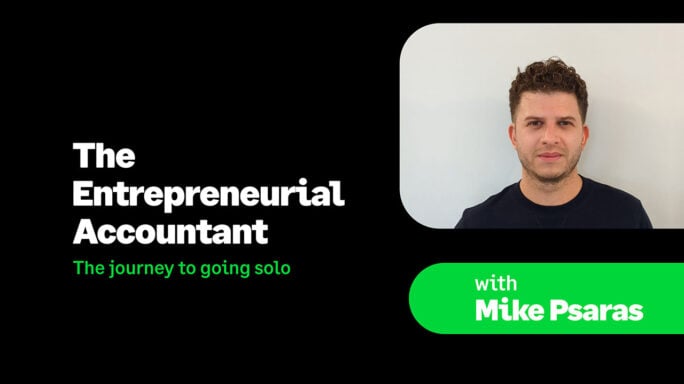
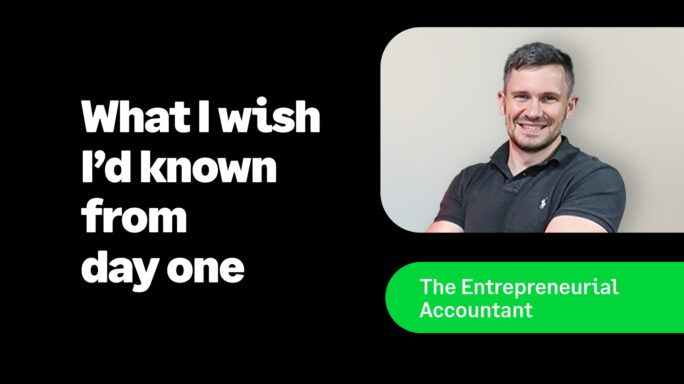
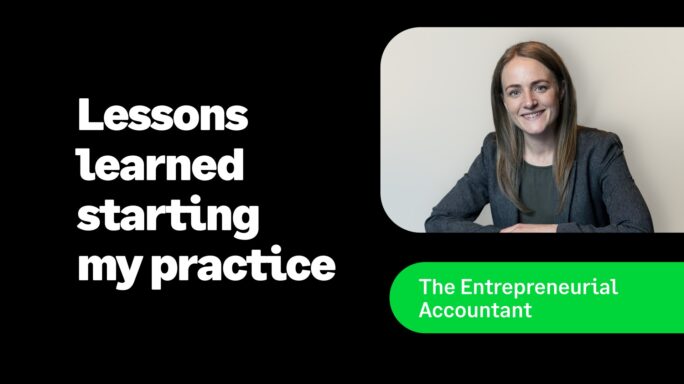
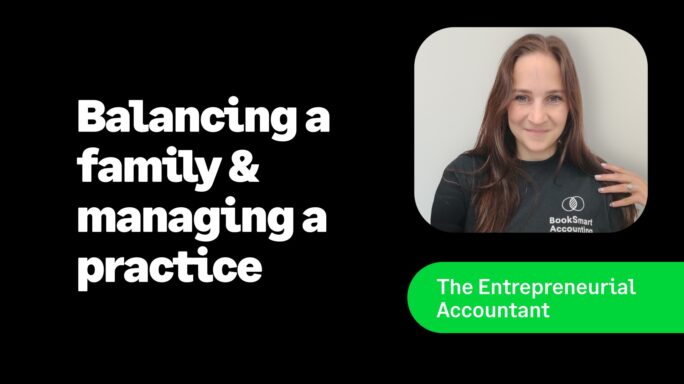
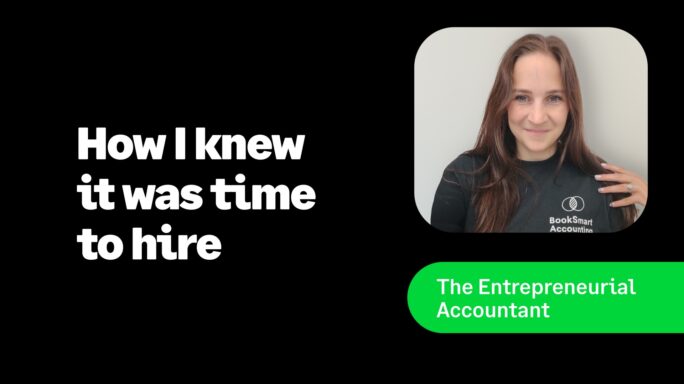
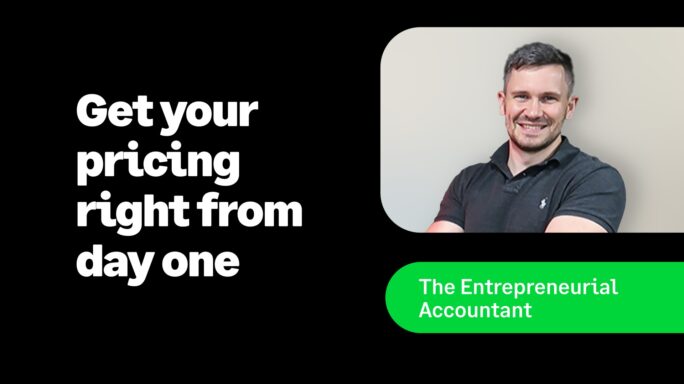
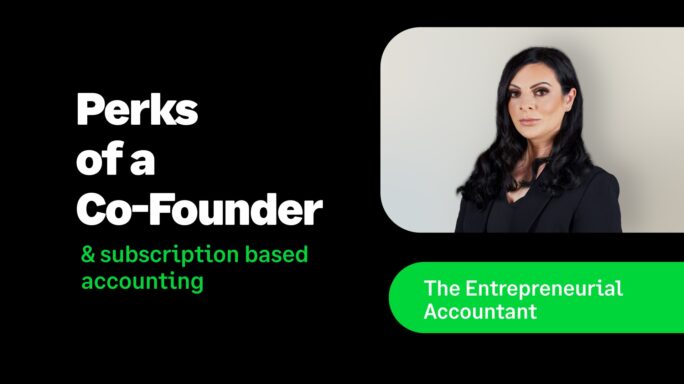
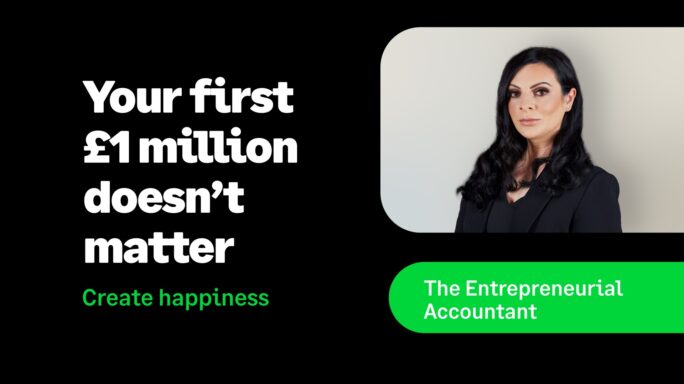
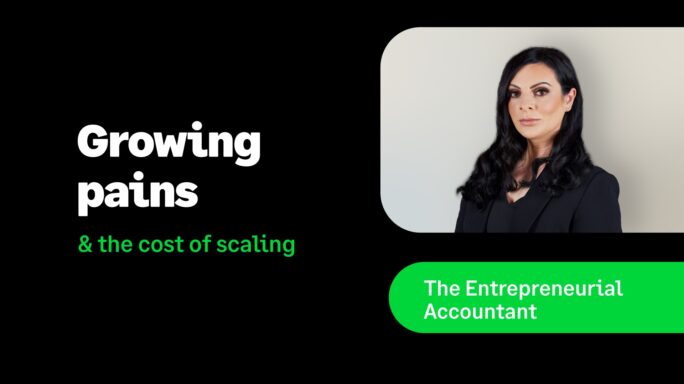
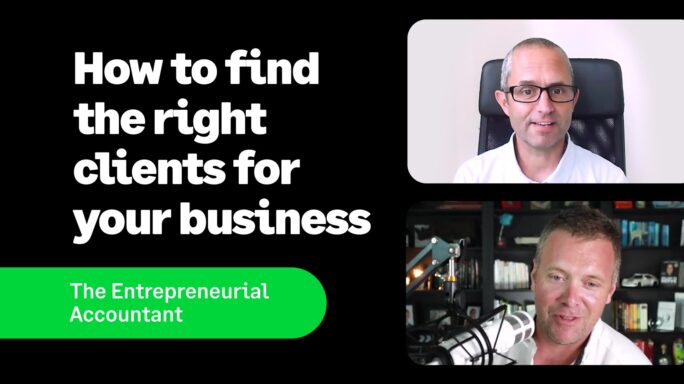
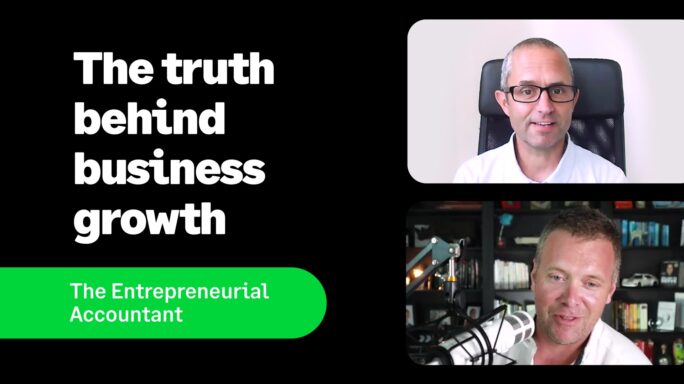
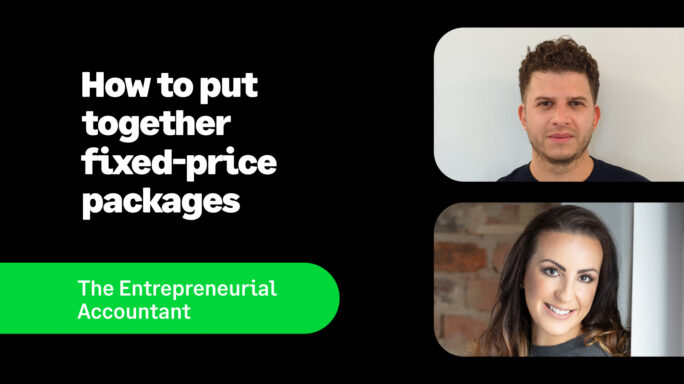
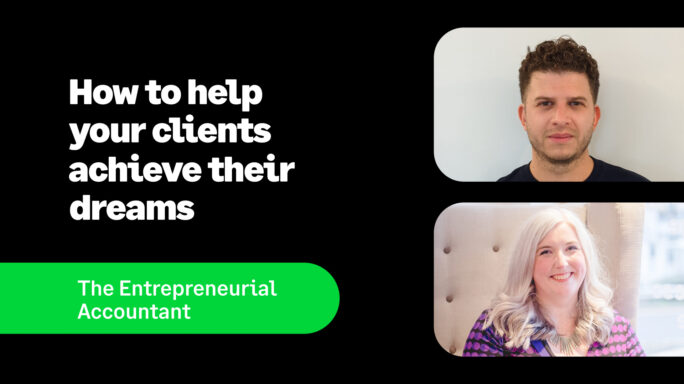
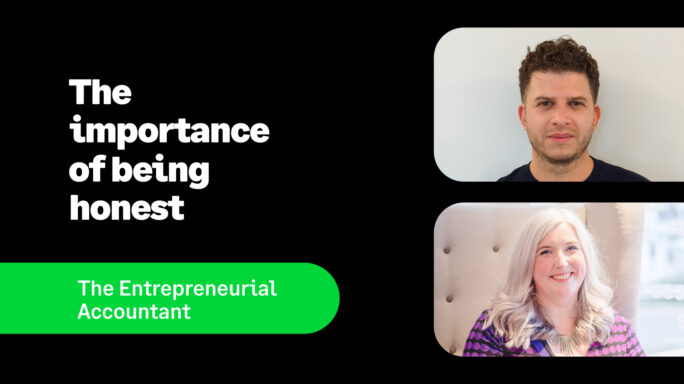
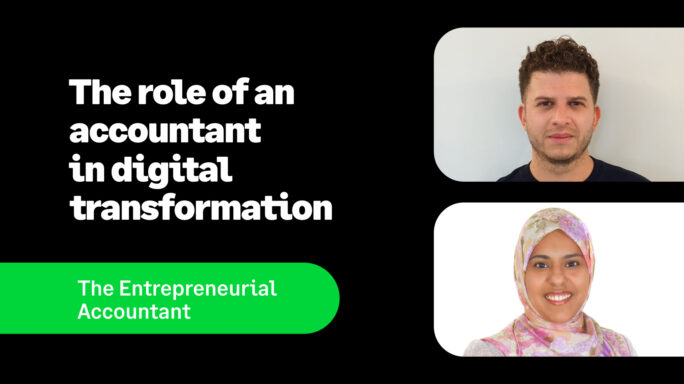
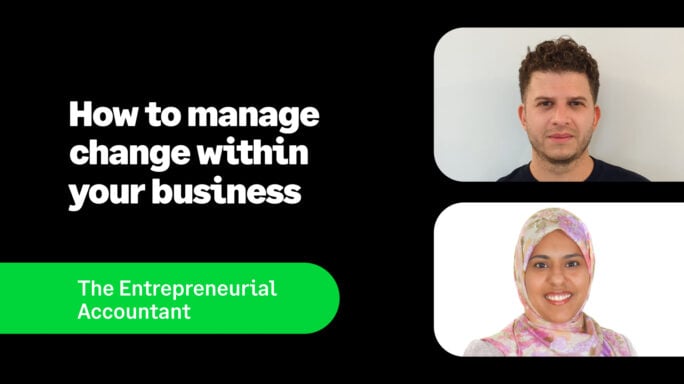
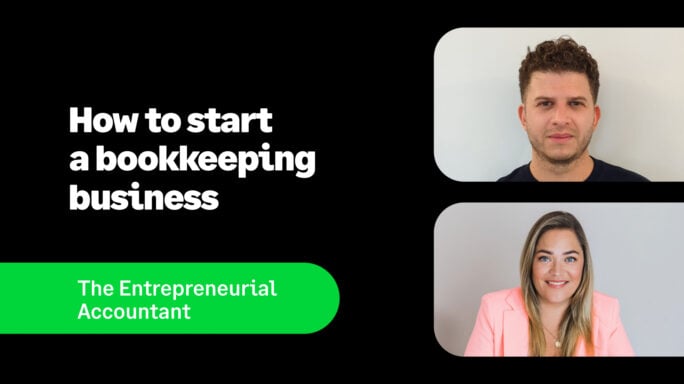
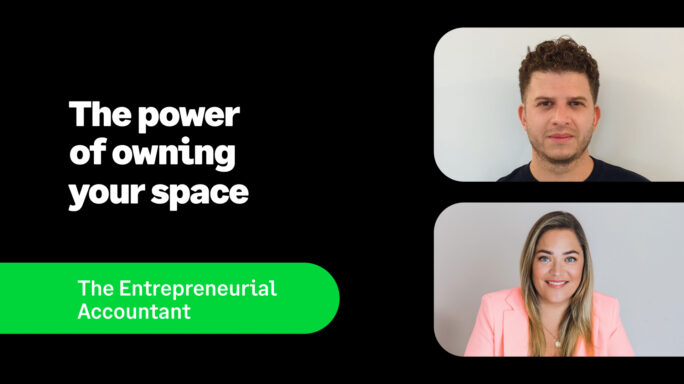







Comment below